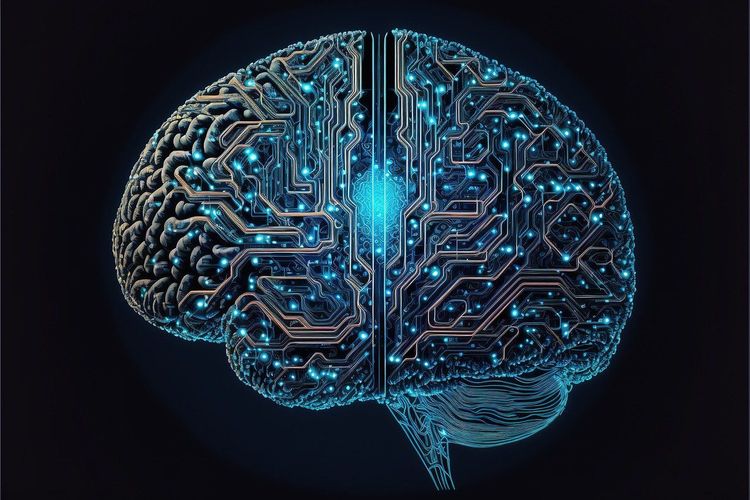After being preempted by OpenAI, tech giant Google has launched its own cutting-edge multimodal AI product. During the Google I/O Developer Conference keynote, held on May 14, the company unveiled Project Astra, its AI assistant powered by the upgraded Gemini model, alongside Veo, a text-to-video model designed to compete with Sora, and the sixth-generation Tensor Processing Unit (TPU), known as Trillium. The keynote, which emphasized AI advancements, featured an astonishing 121 mentions of "AI."
Google CEO Sundar Pichai highlighted the centrality of the generative AI model Gemini, stating, "We want everyone to benefit from what Gemini can do."
Enhancements in AI Search and Gemini
Google is enhancing its AI search capabilities with the latest version of Gemini. This upgraded search engine will have advanced multi-step reasoning, enabling it to resolve complex queries with multiple constraints efficiently. It will assist users in brainstorming and support video searches, allowing solutions through video input. The initial rollout will be in the United States, with plans to reach over 1 billion users by year-end.
Gemini is known for its extensive context window. The keynote showcased the multimodal capabilities of the Gemini 1.5 Pro model, which will be available in over 150 countries, featuring a context window of 1 million tokens and supporting more than 35 languages. Pichai noted that Gemini 1.5 has "the longest context window among all foundational models to date," with plans to expand to a 2 million tokens context window later this year.
Beginning this summer, Gemini will also support real-time voice interactions, with live video interactions expected later in the year. Google plans to introduce custom AI assistant features, called Gems, allowing seamless interaction within the Google ecosystem. Additionally, for rapid-response needs, the Gemini 1.5 Flash model will be launched, optimized for high-performance tasks while maintaining a similar long context window.
Project Astra: A New AI Assistant
In response to OpenAI’s GPT-4o, an AI assistant capable of human-like interactions, Google introduced Project Astra. Demonstration videos showed Astra analyzing information from a smartphone camera or smart glasses, successfully identifying sequences of code, suggesting improvements to circuit diagrams, and recognizing locations in London.
Astra’s prototype leverages the Gemini model to process information quickly by integrating continuous video and voice inputs. However, the assistant's response speed appeared slightly slower than that of GPT-4o. Pichai indicated that Google aims to integrate Astra’s capabilities into its Gemini applications and products, cautioning that the rollout will prioritize quality.
Competing with OpenAI in Text-to-Video
In its competitive landscape against OpenAI's Sora, Google introduced Veo, a text-to-video model that can generate high-quality 1080p videos from text, visual, and video prompts. Users will have the option to customize aspects like lighting, camera angles, and color styles, though a specific release date for Veo has not yet been shared.
In addition, Google announced a suite of generative AI tools related to image and music, including Imagen 3, which achieves higher detail in image synthesis, and "AI Music Sandbox," an AI music tool developed in partnership with YouTube and musicians.
Advancements in Hardware
On the hardware side, Google plans to launch its sixth-generation data center AI chip, the TPU Trillium, later this year. Pichai noted that each chip will be 4.7 times more powerful than its predecessor, achieved through expanded matrix multiplication units and increased clock speeds. This generation is also designed to be 67% more energy-efficient, with double the memory bandwidth.
Prominent AI researcher Andrew Ng praised Google for its developments, expressing enthusiasm about the potential of Gemini’s 2-million-token context window, which could create new opportunities for application developers. Jim Fan, a senior research scientist at NVIDIA, remarked that Google’s integration of AI into search represents a strategic advantage in distribution.
In a recent interview, Pichai addressed Google's competition with Microsoft and OpenAI, expressing confidence in the company's long-term competitiveness, highlighting that the AI wave is still in its early stages.
Recently, Alphabet, Google’s parent company, reported its first-quarter earnings for 2024, revealing a revenue of $80.54 billion, a 15% increase year-over-year, marking the fastest growth quarter since early 2022, with a non-GAAP net profit of $23.66 billion, a 57% rise, and diluted earnings per share of $1.89, exceeding market expectations.







